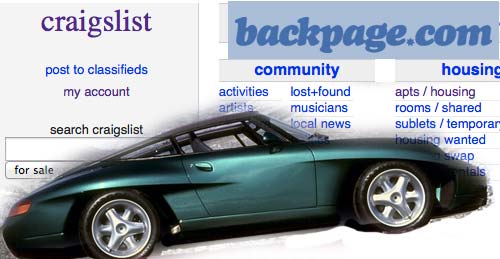The Top 3 Car Scams You Should Know About
This guest blog post is courtesy of Autoshippers.co.uk (a car shipping company you can trust) and used with their kind permission. More information on car scams can be found on their site.
It is estimated that car buying scams cost UK consumers around £3 million every single year, and although you may think that it would never happen to you, thousands of people are left significantly out of pocket by fraudsters.
Read on as we detail the three of the most prolific car buying and selling scams that you should be aware of.
The Car Shipping Scam
A growing problem across the internet which is targeting the sellers of cars, boats, motorbikes and even horses, is the car shipping scam.
The seller is initially contacted and informed of the buyer’s interest in purchasing the vehicle and that they would be shipping it via their approved shipping company. Once the seller agreed to the sale they would be sent a cheque covering the cost of the car and the shipping costs, and a few days later they would be asked to forward the cost of the shipping on to the shipping company chosen by the buyer.
However rather than completing the sale you will find that the original check bounces and that the slice of that money you sent to the shipping company is lost and untraceable.
The Virtual Vehicle Scam
Like with the scam described above the Virtual Vehicle Scam involves fake shipping websites that promise to look after your money while the deal is completed – this time when you’re the buyer.
After you have intimated that you are interested in purchasing a vehicle (which is currently located abroad) you will be pointed towards this so-called shipping company who state that they will hold your funds until delivery of the car has been completed.
However what actually happens is that your money is forwarded on without the car ever turning up – costing you thousands of pounds.
The Vehicle Matching Scam
This next scam may sound like it would be easily avoided, however according to the AA, Consumer Direct received more than 1600 complaints regarding this kind of scam in 2008.
The way it works is that someone who is advertising a vehicle for sale in a magazine, newspaper or online is contacted by a cold-caller who promises to match them with guaranteed buyers – for a small fee of course.
However there will often be no buyer at all and any monies paid will be lost.
Things to Remember
- Does it sound too good to be true? If so, then it probably is.
- NEVER hand over money to someone you don’t know or have never met for a vehicle that you haven’t physically seen.
- If the seller is seemingly offering a deal that is bad value for THEM then consider why they are entering into the sale in the first place?
- NEVER use money transfer companies such as Western Union to send funds to people you don’t know as this cash cannot be traced.



